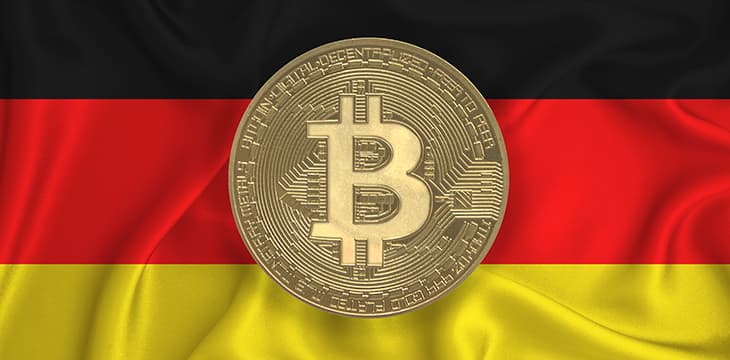|
Getting your Trinity Audio player ready...
|
After 16 years under the leadership of Chancellor Angela Merkel, Germany is transitioning to a new government—one led by a coalition of three political parties. The new government comes into power with many expectations and pledges, and for the digital currency industry, it could spell four years of immense growth and adoption.
Germany, which is Europe’s largest economy and the fourth largest globally, will be led for the next four years by the Olaf Scholz-led ‘traffic light coalition’ government. This government, which brings together three political parties, has pledged to revitalize the German economy, lagging behind as the rest of Europe recovers from the pandemic.
Digitalization is at the heart of the new government’s agenda. It laid out several strategies to achieve this goal in a 177-page document, and digital currencies and blockchain technology will feature prominently.
It stated, “We need a new dynamic in relation to the opportunities and risks from new financial innovations, crypto assets and business models. We advocate a level playing field with equal competitive conditions within the [European Union], between traditional and innovative business models and towards large digital companies.”
The new government will focus on enhancing regulations for the digital assets industry. It intends to work with other nations and the regional regulators to oversee the sector “to ensure holistic and risk-adequate supervision of new business models.”
“We need joint European supervision for the crypto sector. We oblige crypto asset service providers to consistently identify the beneficial owners,” the coalition stated.
However, the new government is cautious with digital currencies, acknowledging that they could potentially be used for illicit purposes. Its approach, to curb this, will be working with the regional regulators to “not only take care of the traditional financial sector but also prevent the misuse of crypto values for money laundering and terrorist financing.”
When tokenization has become the driver of growth, especially for corporate users, the traffic light alliance is looking to make Germany the place to be. As one Member of Parliament whose party is part of the coalition noted, the government will allow the issuance of tokenized assets.
Die Möglichkeit zur Emission elektronischer Wertpapiere wird auf Aktien erweitert. #Blockchain #Koalitionsvertrag
— Frank Schäffler (@f_schaeffler) November 24, 2021
The coalition’s agenda document states, “Digital financial services should work seamlessly, therefore, we will create the legal framework and the possibility to expand the issuance of electronic securities to include stocks.”
Watch: CoinGeek New York panel, Tokenized Assets, Stablecoins and Custody with BSV

 03-02-2026
03-02-2026 




